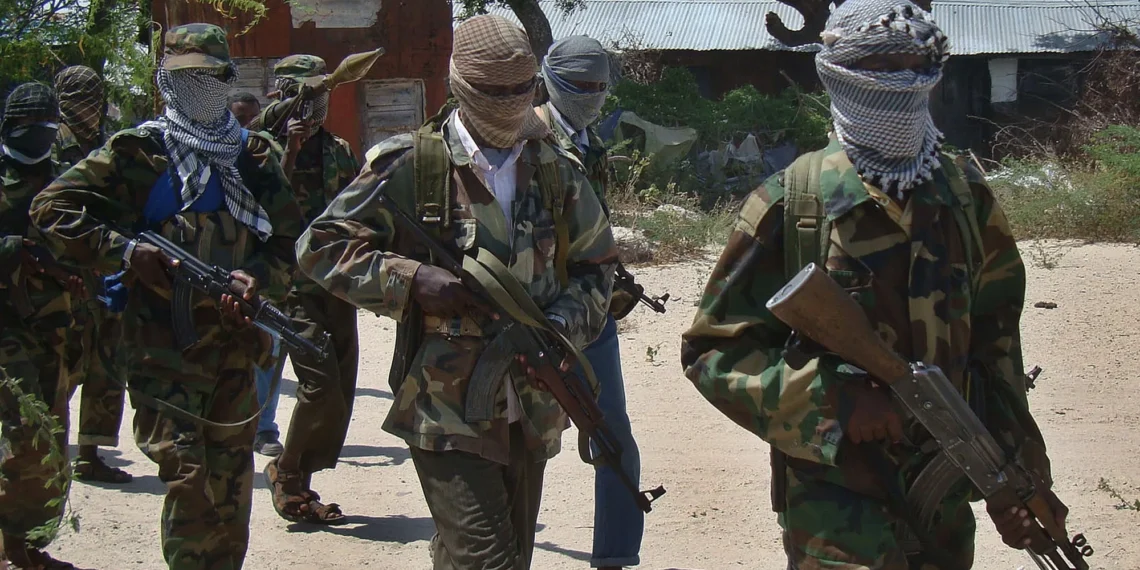Ethiopia’s intelligence service has arrested 82 individuals allegedly affiliated with the Islamic State group, claiming they were part of a network trained to launch operations across the country. According to sources, the suspects belonged to the Somalia-based Islamic State affiliate, which operates primarily in the semi-autonomous Puntland region.
The Ethiopian National Intelligence and Security Service (NISS) stated that the arrests were made after extensive surveillance, which uncovered the group’s plans to infiltrate Ethiopia’s borders and establish sleeper cells. “NISS has been closely monitoring the group’s cross-border infiltration strategies and its efforts to establish sleeper cells in Ethiopia,” Fana reported late Tuesday.
The Somali affiliate of the Islamic State, though smaller than its rival al-Qaeda-linked group al-Shabaab, has become an increasingly influential arm of the global jihadist network. Estimates suggest the faction includes between 700 and 1,500 fighters, boosted by the arrival of foreign combatants and a growing stream of revenue.
While the Islamic State’s footprint in Somalia remains limited geographically, its ambitions are far-reaching. The U.S. military has carried out targeted airstrikes on the group for years, with an escalation in operations since President Donald Trump assumed office. In a parallel campaign, Puntland’s local government has intensified its offensive since December, recapturing key territories from the insurgents.
Growing Terrorism Raises Concern
The rise of terrorism in Africa, particularly in East and the Sahel regions, has become a pressing security crisis drawing international concern. Over recent years, violent extremist groups have capitalized on political instability, weak governance, poverty, and porous borders to extend their influence and perpetrate attacks, causing significant civilian and military casualties. This escalation has shifted the global terrorism landscape, with the Sahel now witnessing more terrorism-related deaths than any other region worldwide.
In the Sahel, groups such as the Islamic State in the Greater Sahara (ISGS) and Jama’at Nusrat al-Islam wal-Muslimin (JNIM), an al-Qaeda affiliate, have intensified their campaigns of violence across Mali, Burkina Faso, and Niger. ISGS, considered the deadliest of these factions, has launched large-scale attacks targeting both military forces and civilians, triggering widespread displacement and humanitarian crises.
Meanwhile, Boko Haram and its splinter factions remain active in Nigeria and the Lake Chad Basin, maintaining operational alliances with groups like Al-Shabaab in Somalia as well as other regional networks linked to Al-Qaeda in the Islamic Maghreb (AQIM). This interconnectedness allows these groups to share expertise, coordinate attacks, and reinforce their ideological narratives.
Financing these terrorist organizations is a complex web involving multiple illicit sources. Kidnap-for-ransom operations yield substantial payments, often funded by governments or private entities seeking to free hostages. In addition, these groups engage in drug trafficking, arms smuggling, and extortion, including taxing local populations in territories under their control. Corruption and complicity by some local officials, along with the absence of strong law enforcement, facilitate these illicit flows of funds, enabling the militants to sustain and expand their operations.
Strategically, terrorist factions employ diversified and brutal tactics ranging from ambushes and suicide bombings to assassinations and targeting of schools, health facilities, and humanitarian workers. By instilling fear, disrupting public services, and undermining trust in state authorities, they seek to establish firm control over affected communities.
Their recruitment methods exploit socioeconomic vulnerabilities, particularly among youth living in poverty and marginalization. By framing themselves as defenders of disenfranchised populations and offering financial incentives or a sense of purpose, they attract new members who might otherwise find no prospects within legal frameworks.
The security dynamics have become more volatile following the reduction of Western military presence in the region and the involvement of new international actors with varied agendas. This evolving landscape grants insurgents greater freedom to establish footholds in urban centers and expand territorial control beyond traditional strongholds.
Analysts warn that without a renewed and comprehensive approach combining military pressure with governance reforms and economic development, extremist violence will escalate further, threatening regional stability and growth.
As such, terrorism in East and Sahel Africa represents a multifaceted and growing challenge. Addressing it requires coordinated efforts that tackle not only the immediate security threats but also the root causes of radicalization, including poverty, poor governance, and social exclusion.
READ ALSO: Trump Administration Scraps Tomato Suspension Agreement With Mexico























